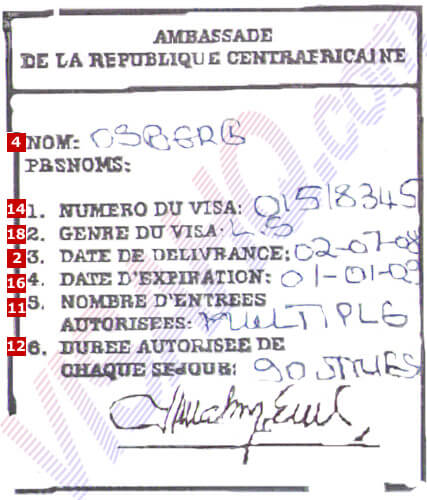Central African Republic Embassy list in Tunisia
Need help?Chat with us
Why Trip Registration at the Central African Republic Embassy is Important
Registering your trip with the Central African Republic embassy is crucial for ensuring your safety while abroad. In the event of a natural disaster, political unrest, or medical emergencies, the embassy becomes a vital point of contact. For instance, if a natural disaster like an earthquake strikes while you are traveling, the embassy can provide timely updates and assistance in evacuation efforts. Similarly, during political disturbances, registered travelers receive critical alerts and guidance to navigate the situation safely. Furthermore, if you find yourself facing a medical emergency, embassy registration can facilitate quicker communication and access to local health services. By keeping track of registered citizens, the embassy can provide necessary support tailored to your needs, making your travel experience not only safer but also more reassuring.
Central African Republic Embassy FAQs
Can the Central African Republic embassy assist in legal issues abroad?
Yes, the embassy can provide information on local legal resources and refer you to trusted legal professionals in Tunisia if you encounter legal issues.What should I do if I lose my Central African Republic passport in Tunisia?
Report the loss to the local authorities and the Central African Republic embassy as soon as possible. The embassy can guide you through the process of obtaining a replacement passport.How can the embassy help if I am detained abroad?
The embassy can provide assistance by notifying family members, offering legal information, and working to ensure that you receive fair treatment according to local laws.Does the embassy offer travel health information?
Yes, the embassy provides health advisories and can direct you to local medical facilities in case you need medical assistance while in Tunisia.How can I contact the Central African Republic embassy in Tunisia?
You can contact the embassy by phone, email, or in-person visit. The embassy’s official website usually lists the most current contact details.
Services Provided by Central African Republic Embassies in Tunisia
Passport Services
- Issuance of new passports
- Renewal of existing passports
- Lost passport replacement
Visa Issuance for Foreign Nationals
- Processing visa applications
- Providing necessary documentation for travelers
Assistance in Legal or Medical Emergencies
- Providing information and referrals for legal aid
- Emergency medical assistance and advice
Travel Alerts and Safety Updates
- Issuing alerts related to safety and security concerns
- Providing travel advisories based on current events
Support for Nationals Detained Abroad
- Communication assistance with authorities
- Access to legal resources and support
Summarized Diplomatic Presence
The Central African Republic maintains a significant diplomatic presence in Tunisia through its embassy, located in the capital city of Tunis. The primary function of this embassy is to foster diplomatic relations, promote trade and investment, and provide support to Central African nationals residing or traveling in Tunisia. The embassy plays a pivotal role in enhancing cultural exchanges and facilitating collaboration on regional issues. By serving as a liaison between the Central African Republic and Tunisia, it strengthens bilateral ties, contributing to peace and stability in the region. целом, the embassy’s active engagement in various diplomatic activities underscores its importance in international relations and cooperation.
